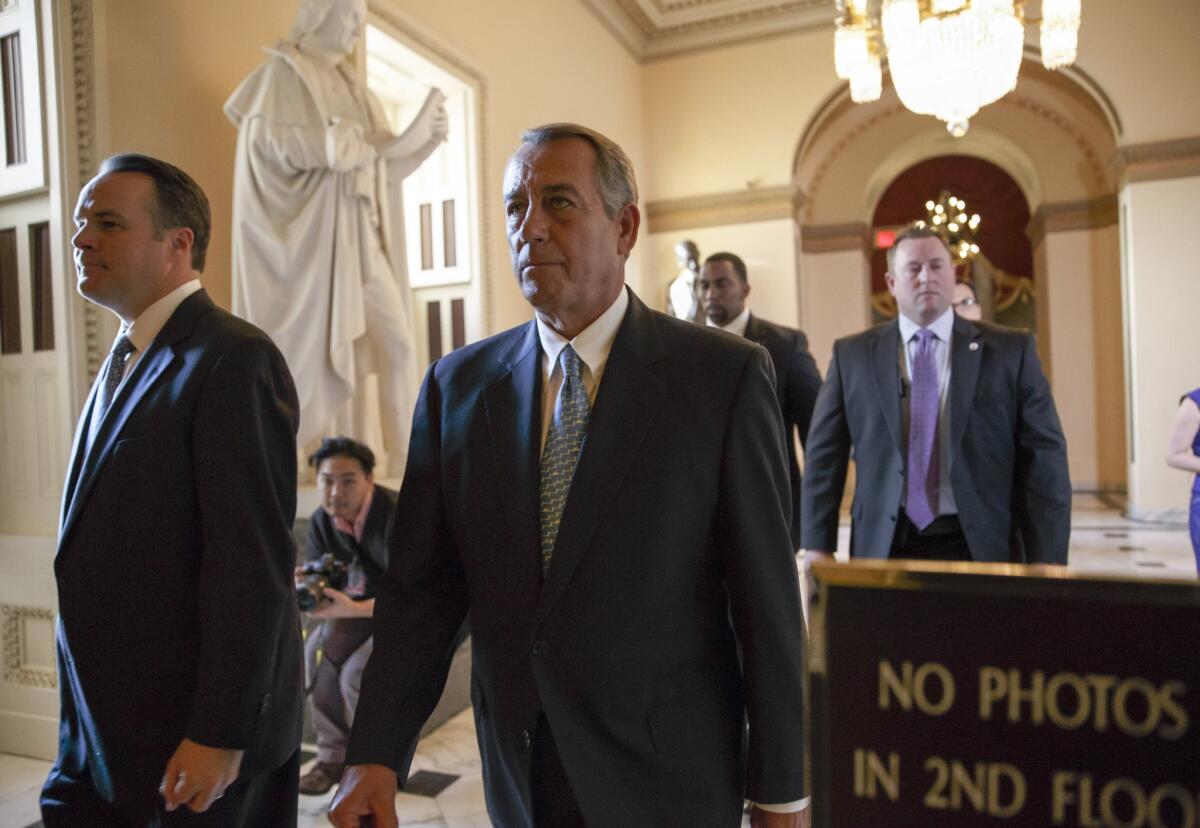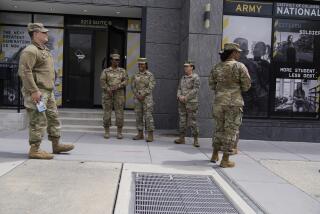Homeland Security officials scramble to prepare for shutdown

Reporting from Washington — As the clock ran out on the Department of Homeland Security’s budget Friday, managers at offices across the country scrambled to make plans for thousands of furloughs and service cuts.
Training centers for air marshals, Secret Service officers, and immigration and border agents readied to go dark. Headquarters told clerical staff to stay home. And Border Patrol officials prepared to pull uniformed agents off the line to answer phones and file paperwork.
Researchers seeking new ways to detect explosives on airplanes will be furloughed without pay. So will teams working to improve ways to detect nuclear weapons or devices designed to spread lethal radiation.
The department’s cybersecurity response center, which informs American businesses and government agencies about new hacking threats or operations, will reduce its staff by nearly 60%.
Nearly 200,000 men and women -- including front-line workers at the Coast Guard, Border Patrol, Immigration and Customs Enforcement, Transportation Security Administration and the Secret Service -- will be required to work without pay.
Once Congress passes a new funding bill, workers are likely to receive back pay, although that is not guaranteed.
Beyond that, current and former officials warned that financial stops and starts won’t help a department rife with management problems and low morale since it was cobbled together from 22 separate agencies more than a decade ago.
“It is devastating for morale across the board,” John Sandweg, a former acting director of Immigration and Customs Enforcement, said in a telephone interview.
Sandweg ran ICE during the 17-day government shutdown in 2013 and recalled the frustration managers felt as they handed furlough notices to individual employees and told them their jobs were “nonessential.”
The Senate on Friday approved funds to keep the department operating past the midnight deadline, but House Republicans balked. In a blow to GOP leaders, rank-and-file Republicans even defeated a three-week funding measure intended to keep the lights on while negotiations continue.
Several conservative Republicans in Congress downplayed the damage a shutdown will do, saying government employees necessary for protecting airports, borders, ports and the president still will be required to report to their posts. They just won’t be paid.
Barring a last-minute resolution, about 30,000 Homeland Security employees -- 15% of the workforce -- will be told Saturday not to report for work next week.
Staff in offices that run computer systems, contracting and purchases, hiring and financial management will be reduced by 90%, from more than 2,000 to 208 people, according to the department.
Adding to the turmoil, $2.5 billion in grants that flow each year to state and local governments have been at a standstill since the fall, when Congress refused to provide a full year’s funding to Homeland Security.
The grants allow local police and fire departments and other first responders to upgrade equipment and pay for training to respond to major disasters and terror attacks.
Homeland Security Secretary Jeh Johnson spent most of the week racing from news conferences to Capitol Hill, warning that a shutdown would weaken national security and affect thousands of families.
Johnson called it “disruptive and demoralizing” to ask front-line agents and officers to work without pay.
“These working men and women depend on biweekly paychecks to make ends meet for themselves and their families,” Johnson wrote in a letter to House Speaker John A. Boehner (R-Ohio) and Senate Majority Leader Mitch McConnell (R-Ky.), as well as top Democrats in each chamber, Rep. Nancy Pelosi (D-San Francisco) and Sen. Harry Reid (D-Nev.).
“Even worse for our people are the public statements by some that make light of a shutdown,” Johnson added.
The starting salary for Border Patrol agents is between $28,000 and $35,000 per year, depending on experience, according to Shawn Moran, vice president of the union that represents Border Patrol agents.
“Financially not knowing when your next paycheck is going to come, that is quite an impact,” Moran said.
Follow @ByBrianBennett for more national news
More to Read
Sign up for Essential California
The most important California stories and recommendations in your inbox every morning.
You may occasionally receive promotional content from the Los Angeles Times.











